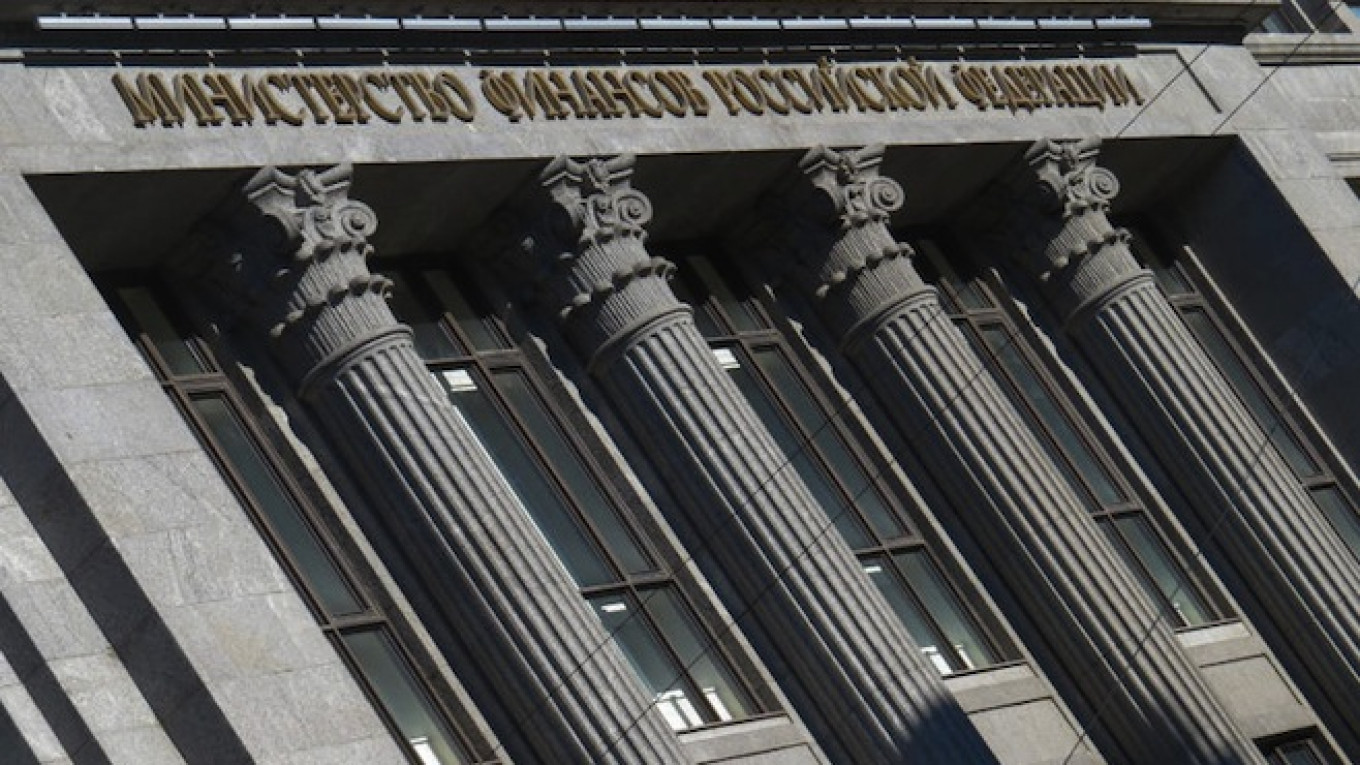Russia has changed this year's budget plans and now expects to spend 3.1 trillion rubles ($49.81 billion) from the country's Reserve Fund, according to Finance Ministry data.
On Monday the government submitted the new budget to the lower house of parliament, which may make some revisions but is unlikely to substantially alter the plans.
Earlier this month the Finance Ministry had said that it expected to use 3.7 trillion rubles from the Reserve Fund this year, itself an upward revision from other recent projections.
The planned 3.1 trillion still represents a major drain on the $77 billion Reserve Fund, the main resource for covering budget shortfalls, implying that two-thirds of this fund will need to be used this year and leaving Russia vulnerable to prolonged low oil prices.
The latest revisions left projections for revenues, expenditures and the budget deficit little changed compared with plans revealed earlier this month.
These plans envisage a 2.5 trillion ruble shortfall in revenues compared with the 2015 budget adopted last autumn, which is now being revised to reflect lower oil prices and weaker economic growth.
Whereas the original budget assumed an average oil price of $100 per barrel, the new budget assumes the oil price will average $50.
Russia now envisages a deficit equivalent to 3.7 percent of gross domestic product — up from 0.6 percent in the original budget — with expenditures of 15.2 trillion rubles outstripping revenues of 12.5 trillion rubles.
The projected drain on the Reserve Fund is around 400 billion rubles higher than the projected deficit because of the need to pay off government debts.
Russia plans to raise 1 trillion rubles from domestic bond issues in 2015, insufficient to cover around 1.4 trillion rubles in government liabilities that fall due, including 821 billion rubles in domestic bond redemptions, the data showed.
A Message from The Moscow Times:
Dear readers,
We are facing unprecedented challenges. Russia's Prosecutor General's Office has designated The Moscow Times as an "undesirable" organization, criminalizing our work and putting our staff at risk of prosecution. This follows our earlier unjust labeling as a "foreign agent."
These actions are direct attempts to silence independent journalism in Russia. The authorities claim our work "discredits the decisions of the Russian leadership." We see things differently: we strive to provide accurate, unbiased reporting on Russia.
We, the journalists of The Moscow Times, refuse to be silenced. But to continue our work, we need your help.
Your support, no matter how small, makes a world of difference. If you can, please support us monthly starting from just $2. It's quick to set up, and every contribution makes a significant impact.
By supporting The Moscow Times, you're defending open, independent journalism in the face of repression. Thank you for standing with us.
Remind me later.






